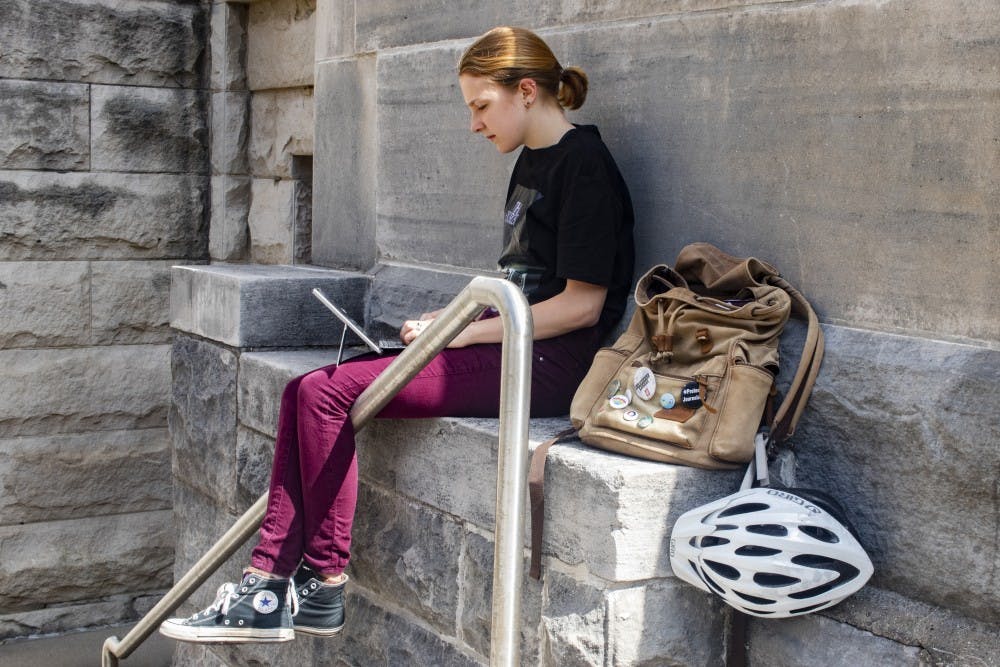When freshman Jacob Bailey started his first semester at IU, he said he was surprised at how much time he spent trying to get on the Wi-Fi.
His laptop doesn’t always connect in class, he said, which has been a frustrating distraction during his college experience so far.
“I figured I’d be more concerned about classwork and not, you know, trying to connect to Wi-Fi so I could do my classwork,” Bailey said.
To some of the students who have been at IU for a few years, the lack of a solution seems confusing.
Junior Hibah Butt said her laptop will sometimes disconnect if she can get it to connect at all. She doesn’t ever remember the Wi-Fi being this bad.
“I’m surprised it’s been very long,” she said. “I thought they would have fixed it by now.”
Dave Jent, associate vice president for networks with University Information Technology Services, said the network will be split into two smaller networks this weekend in an effort to solve the problem.
The split will be mostly between residence halls and academic buildings, allowing the workload to be spread more evenly, Jent said.
"We're gonna cut the bubble in half, but neither side pops," Jent said.
Students’ devices will connect the same, so they don’t have to worry about a separate login process or any additional steps because what the computer connects to won’t change.
UITS began making hardware updates to the wireless environment during the summer when far fewer devices use the network, Jent said.
During the semester, about 55,000 different devices connect to the network over the course of an hour at peak use, mostly from 10 a.m. and 2 p.m. Monday to Thursday. Around 35,000 are connected at once during these times.
“Those are things we can’t simulate in the summer,” Jent said.
Calls about Wi-Fi problems have dropped since the beginning of the semester, which Jent said could either mean there are fewer problems or people are just sick of calling.
Right now, Jent said he isn’t sure what option is right, so students should keep reaching out if they experience issues.




